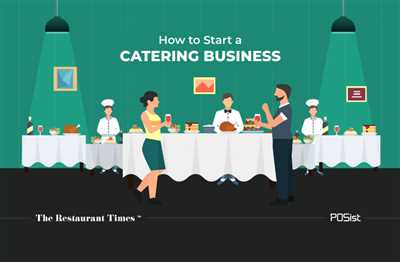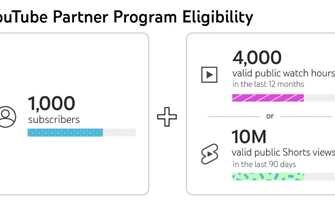
If you have a passion for cooking and enjoy serving others delicious food, starting your own catering business might be the perfect venture for you. Catering can be a profitable and fulfilling business, but it requires careful planning and execution. In this guide, we will walk you through the steps to getting your catering company up and running, from determining your financial needs to finding clients and everything in between.
Step 1: Determine Your Financial Needs
Starting any business requires a financial investment, and catering is no exception. Before you can jump in and start cooking, you’ll need to assess your own financial situation and determine how much money you’ll need to get your catering business off the ground. This includes purchasing kitchen equipment, renting a suitable location, and marketing your services. Consider whether you’ll need to secure loans or investors to help you finance your catering venture.
Warren Buffet once said, “It takes 20 years to build a reputation and five minutes to ruin it.” In the catering business, your reputation is everything. That’s why it’s important to invest in high-quality ingredients and provide exceptional service to your clients. The cost of sourcing natural and organic ingredients might be higher, but it will pay off in the long run when your clients rave about the delicious and healthy meals you provide.
Step 2: Define Your Target Market
Your target market will determine the type of catering services you offer and the kind of events you will cater to. Do you want to focus on small, intimate gatherings like weddings and private parties, or do you want to cater to large corporate events? Are you interested in providing kosher or vegan menus? Defining your target market will help you tailor your menu options and marketing efforts to attract the right clients.
Step 3: Complete the Legal Requirements
Before you can start operating your catering business, you’ll need to comply with all the legal requirements in your area. This may include obtaining permits and licenses, registering your business, and meeting health and safety regulations. It’s essential to familiarize yourself with the legal obligations and ensure you have everything in order before taking on your first clients.
According to renowned chef and catering expert, Alice Waters, “Cooking is one of the oldest arts and one that has rendered us the most civilized.” In the catering business, you have the opportunity to showcase your culinary skills and make a positive impact on people’s lives through food. Take the time to research and understand the legal requirements in your area so you can operate your catering business smoothly and legally.
A Complete Guide to Starting Your Own Catering Company
Starting your own catering company can be a challenging but rewarding venture. With determination, hard work, and proper planning, you can turn your passion for food into a profitable business. This complete guide will walk you through the necessary steps to get started in the catering industry.
Step 1: Determine the Type of Catering Business You Want to Start
The first step is to determine what kind of catering business you want to operate. There are many different types to choose from, including social events catering, corporate catering, and even specialized cuisines like kosher or vegan catering. Consider your skills, interests, and target market when making this decision.
Step 2: Research and Prepare
Once you’ve decided on the type of catering business you want to start, it’s important to research the industry and gather all the necessary information and requirements. This includes obtaining the necessary licenses, certifications, and permits to legally operate your catering business in your area.
Step 3: Create a Business Plan
A well-written business plan is essential for any small business, including catering. Your business plan should include an overview of your company and its goals, a thorough market analysis, financial projections, and marketing strategies. It will serve as a roadmap for your business and help you make informed decisions.
Step 4: Determine Your Target Market
Identifying your target market is crucial for marketing and catering menu development. Consider the specific needs and preferences of your potential clients, such as the type of events they hold and the kind of food they prefer. This will help you tailor your services and menus to meet their needs.
Step 5: Set Up Your Kitchen
Having a professional, well-equipped kitchen is essential for catering. Make sure to set up a kitchen that meets the health and safety standards of your local authorities. Having the right kitchen equipment and reliable suppliers will help ensure the smooth operation of your catering business.
Step 6: Develop Your Menus
Creating a diverse and appealing menu is crucial for attracting clients. Offer a variety of dishes that cater to different tastes and dietary restrictions. Consider offering customizable menus, as well as catering packages for different types of events.
Step 7: Market Your Catering Services
Once you’re ready to start taking on clients, it’s time to market your catering services. Utilize both online and traditional marketing strategies to reach your target audience. This can include creating a professional website, social media marketing, networking with event planners, and participating in food-related events.
Step 8: Start Getting Clients
Building a strong client base is essential for a successful catering business. Reach out to potential clients through personalized sales pitches, offering sample menus or discounted services to attract their attention. Word-of-mouth recommendations can also play a significant role in getting new clients.
Step 9: Operate Your Catering Business
Once you start getting clients, it’s crucial to deliver exceptional service and maintain a high level of professionalism. Consistently provide delicious food, excellent customer service, and efficient event coordination to ensure client satisfaction. This will help you build a strong reputation and get repeat business.
Step 10: Make a Profit and Grow Your Business
As your catering business grows, make sure to track your expenses and pricing to ensure profitability. Continuously evaluate your menus, services, and pricing to stay competitive in the industry. Consider expanding your business by offering additional services, such as event planning or renting out your own event space.
Starting your own catering company can be a challenging yet rewarding journey. It requires a combination of passion, skills, and business acumen. By following these steps and staying committed to providing excellent service, you can turn your love for food into a successful catering business.
Overview of a Catering Service Business
Starting a catering service business can be a profitable venture, but it requires careful planning and preparation. The cost of starting a catering business will depend on various factors such as the size of the company and the type of events you plan to cater. Location is also important, as you’ll need a kitchen and storage space that meets health and safety requirements.
Before you start, it’s essential to do your homework and research the catering industry. Warren Writing, a catering business owner, says, “You need to understand what kind of catering service your area needs and what your potential clients are looking for.” This step will help you determine your target market and tailor your menus accordingly.
When making the decision to start a catering business, you’ll need to determine whether you want to operate the business full-time or part-time. This will depend on your financial needs and other commitments. If you’re just starting out, it’s common to begin as a part-time caterer and gradually transition to a full-time business as you build your client base.
Getting started in the industry can be overwhelming, but with the right determination and guidance, you can succeed. The first step is to complete all the necessary paperwork and obtain any required licenses and permits. This will include registering your business name, obtaining a tax identification number, and getting liability insurance.
Your own kitchen can serve as a starting point for small catering businesses, but as you grow, you may need to invest in a commercial or shared kitchen space. A fully equipped kitchen is essential for food prep and storage, and it must meet health and safety regulations.
In addition to preparing and serving food, catering businesses often provide other services such as event planning and management. This can include taking care of the décor, arranging for service staff, and coordinating with other vendors such as musicians or photographers.
Marketing is an important aspect of any catering business. You’ll need to reach out to potential clients through various channels, including social media, networking events, and word-of-mouth referrals. Building a strong network of contacts in the event planning industry can also be beneficial.
When it comes to pricing your services, it’s important to consider both your costs and the profit margin you want to achieve. You’ll need to factor in the cost of ingredients, staff wages, and overhead expenses such as rent and utilities. It’s important to strike a balance between offering competitive prices and ensuring you make a profit.
In conclusion, starting a catering service business requires careful planning, determination, and hard work. Doing your research, finding your niche, and meeting all legal and financial requirements are key steps. With time and perseverance, you can establish a successful catering company that meets the needs of your clients and delivers memorable events.
Getting Started
When it comes to starting your own catering business, the first step is to determine what kind of service you want to offer. Catering can range from small, part-time operations to large, full-service companies that cater to weddings and other events. It’s important to have a clear understanding of your area of expertise and determine the needs of your target market.
Once you have a clear idea of your target market and the kind of service you want to provide, you’ll need to start making some important decisions. This includes determining the financial requirements of starting a catering business, such as the cost of operating a kitchen and the cost of acquiring the necessary equipment and supplies.
You’ll also need to consider how you’ll attract clients and market your services. This can include writing a business plan, creating menus, and developing a marketing strategy that will help you stand out from the competition. It’s also important to build a network of contacts in the industry who can help you get started and refer clients to you.
Warren Buffet says that determination is one of the most important traits for entrepreneurs, and it’s especially true when starting a catering business. It can take several months of hard work and preparation before you’ll be ready to start taking on clients and fully operate your catering company. During this time, you may also need to complete any required certifications or licenses, such as obtaining a food handler’s permit or getting liability insurance.
Another important aspect of getting started in the catering business is finding a suitable location to operate from. This could be a commercial kitchen that you rent, or you may choose to operate out of your own kitchen if it meets the necessary health and safety requirements. Additionally, you’ll need to consider any permits or licenses that may be required in your area.
Once you have all the necessary preparations in place, it’s time to start marketing your services and attracting clients. Social media can be a powerful tool for getting the word out about your catering company, as well as attending local events and networking with other businesses in the area. It’s important to have a clear understanding of your target market and tailor your marketing efforts accordingly.
Getting started in the catering business can be a challenging but rewarding endeavor. By following these steps and putting in the necessary hard work and determination, you can start your own successful catering business and make a profit catering to those in your community.
| Step 1 | Determine your area of expertise and target market. |
| Step 2 | Consider the financial requirements and costs associated with starting a catering business. |
| Step 3 | Create a business plan and develop a marketing strategy. |
| Step 4 | Network with industry contacts and build a referral network. |
| Step 5 | Obtain any necessary certifications or licenses. |
| Step 6 | Find a suitable location and ensure it meets health and safety requirements. |
| Step 7 | Market your services through social media, events, and networking. |
| Step 8 | Work hard, stay determined, and provide excellent service to your clients. |
Taking those first steps

When starting a catering business, it’s natural to feel overwhelmed. But with the right guidance and determination, you can start a successful catering business on your own. Warren, a catering business owner, says that taking those first steps is important, even if you start small.
First, you’ll need to determine the kind of catering company you want to operate. There are many different types of catering businesses, including social events, corporate events, and even kosher or Jewish catering. Decide what kind of catering services you want to offer and what area you want to work in.
Next, you’ll need to make sure you’re ready to start a catering business. This includes getting the necessary permits and licenses, as well as meeting the requirements for operating a commercial kitchen. You’ll also need to have the financial and marketing aspects of your business in place.
Warren advises starting part-time, working through your own kitchen and gradually building up your business. This will help keep costs down and allow you to make any necessary adjustments before fully committing to the business. You’ll also need to have a clear understanding of your target audience and develop menus that will appeal to your clients.
When starting your catering business, marketing will be a big part of your success. Use social media, online directories, and other marketing strategies to get the word out about your company. Create a website with photos of your food and menu options to attract potential clients.
Warren suggests that in those first few months of getting started, it’s important to take any catering jobs that come your way, even if they’re small. This will help you build up a portfolio and gain experience. You’ll also need to network with other professionals in the industry to get referrals and build a strong reputation.
It’s also important to consider the financial aspect of your business. Warren advises setting a number of how much profit you want to make each month and keeping track of your expenses. This will help you stay on track and determine if you’re making enough money to cover your costs.
Finally, as you grow your catering business, you may want to consider hiring additional staff or expanding to a larger location. This will allow you to take on larger events and meet the needs of more clients.
Starting a catering business can be challenging, but with determination and the right steps, you can turn your passion for food into a successful venture. Use this overview as a guide to help you get started on the path to a thriving catering business.










